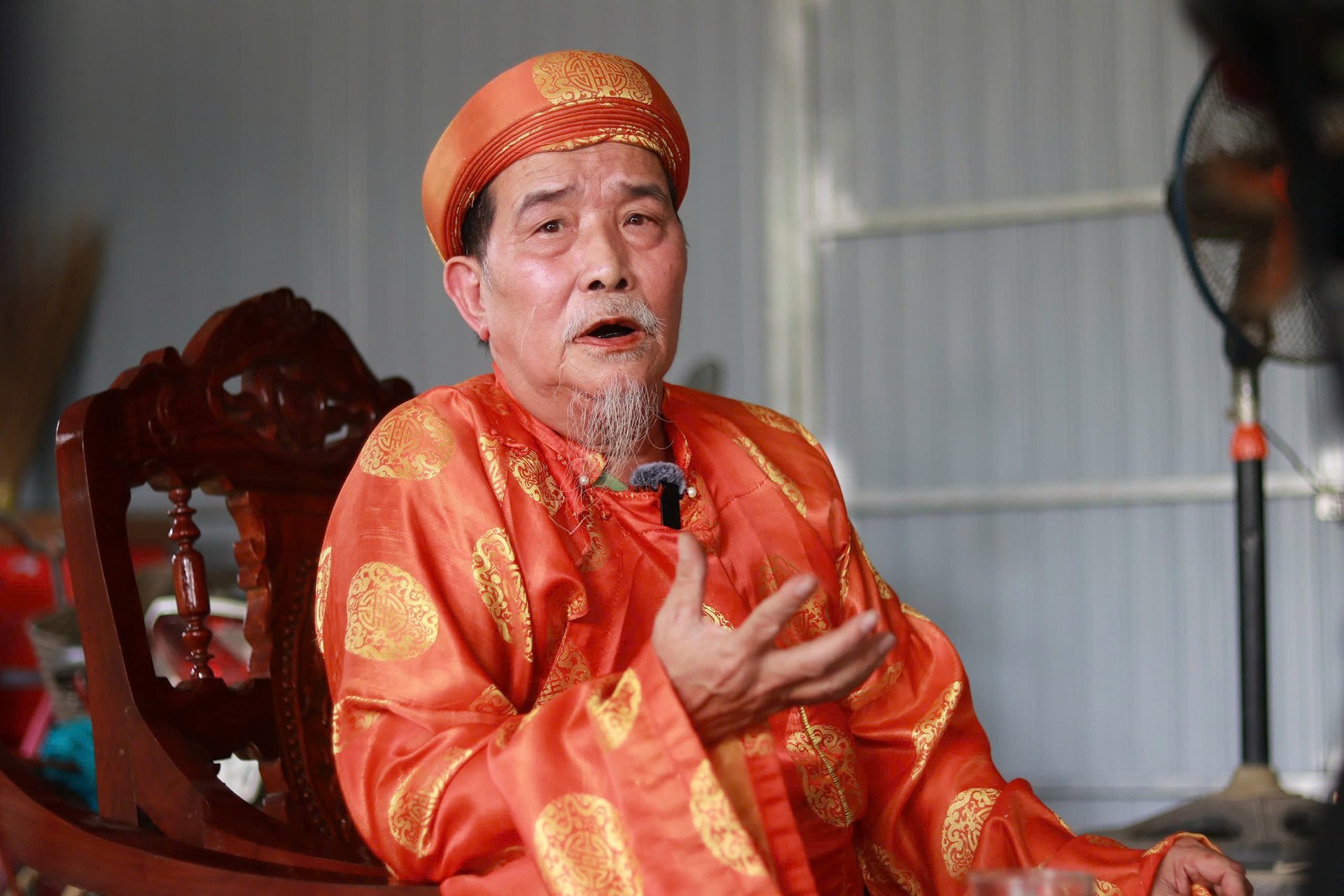OPEC lowered its forecast for global oil demand, Russia changed its gas payment method, Trump's tax and immigration policies could cause a US recession, Germany welcomed a record number of tourists... are the world economic news highlights of the past week.
 |
| President Vladimir Putin has changed the way foreign customers pay for Russian gas. (Source: bne IntelliNews) |
World economy
OPEC cuts global oil demand forecast again
The Organization of the Petroleum Exporting Countries (OPEC) on December 11 continued to revise down its forecast for global oil demand growth this year and next, marking the fifth consecutive month of downward revisions by the organization.
In its December oil market report, OPEC forecast global oil demand to grow by 1.61 million barrels per day (bpd) in 2024, down about 210,000 bpd from the 1.82 million bpd increase forecast last month.
OPEC said the adjustment was due to updated data in the first three quarters of this year, especially “pessimistic data” in the third quarter.
Last week, OPEC+ agreed at a ministerial meeting to maintain current oil production cuts into the first quarter of 2025./.
US economy
* Economist Paul Mortimer-Lee of the UK's National Institute of Economic and Social Research (NIESR) has warned that President-elect Donald Trump could plunge the US economy into recession if he follows through on his campaign promises.
Mr Mortimer-Lee said the “ill-considered, hasty and damaging” combination of tariff hikes, mass deportations of illegal immigrants, tax cuts and spending cuts was likely to tip the US economy into recession.
In the worst case scenario, GDP growth could fall by 2 to 3 percentage points, according to Mr. Mortimer-Lee.
* Inflation in the US increased slightly in November 2024, mainly due to higher prices for used cars, hotel rooms and auto insurance, but remained well below the peak of two years ago.
The consumer price index (CPI) rose 2.7% year-on-year in November 2024, up slightly from 2.6% in October 2024. Core inflation, which excludes volatile food and energy prices, rose 3.3%, unchanged from the previous month. Compared to October, the CPI rose 0.3%, the largest monthly increase since April 2024. Core inflation also rose 0.3% for the fourth consecutive month.
Chinese Economy
* Data from the General Administration of Customs of China shows that in the 11 months of 2024, the total value of goods imported and exported by the country reached 39,790 billion yuan (5,550 billion USD), up 4.9% over the same period last year, of which exports were 23,040 billion yuan (3,213 billion USD), up 6.7%; imports were 16,750 billion yuan (2,336 billion USD), up 2.4%.
Lu Daliang, Director of the Statistical Analysis Department of the General Administration of Customs of China, said that under the impact of inventory and the policy of increasing the volume in the field of foreign trade, China's foreign trade situation is expected to stabilize in 2024, realizing the goal of stable growth in quality.
* Urban infrastructure projects in the coming years will be worth trillions of yuan, boosting employment and stabilizing China's economy .
China plans to spend more than 4 trillion yuan ($551 billion) over the next five years to upgrade its crumbling urban infrastructure.
Meanwhile, technology-focused projects such as data centers and advances related to artificial intelligence (AI) are among the future-facing industries that also have huge potential to increase investment.
European Economy
* The European High Performance Computing (EuroHPC) consortium has just announced the selection of seven proposals to set up and operate the first AI factories across the continent. This is an important step for the old continent in building a thriving ecosystem for creating advanced AI models and developing AI solutions.
With an investment worth 1.5 billion euros ($1.57 billion), Europe is moving closer to fulfilling European Commission (EC) President Ursula von der Leyen's pledge to create the first AI factories.
* A recent study by the Belgian Planning Agency has revealed that the country’s economy is more dependent on the United States than China for the import of strategic products. The study, which ran from 2014 to 2023, analyzed 9,170 items imported into Belgium, of which 445 were identified as strategic.
While China is often seen as the dominant player in global supply chains, the study found that the United States is Belgium’s main source of strategic goods. Specifically, Belgium imported 140 strategic goods from the United States over the past decade, compared to 107 from China.
* Russian President Vladimir Putin has changed the way foreign customers pay for Russian gas , a move that eases concerns that US sanctions on Gazprombank could lead to an early halt in gas supplies to Europe.
The Kremlin decree has made gas payments from Russia possible for foreign customers, including those from the European Union (EU), as it allows them to make payments through third parties.
* Despite the economic difficulties, the German tourism industry had a record number of visitors in 2024. Tourism growth was even higher than before the pandemic in 2019.
Figures released by the German Federal Statistical Office (Destatis) on December 11 show that about 433 million visitors stayed overnight in the country between January and October this year.
In August, the most popular month of the year for tourism in Europe, there were 59 million overnight stays, surpassing the 2019 record of 58.8 million and up 3.3% from August 2023.
Japanese and Korean Economy
* Japan's imports of digital-related services are on track to exceed exports by more than 6 trillion yen ($39 billion) in 2024 , a record annual trade deficit that highlights the need for Japanese companies to create more value from costly digital transformation.
According to the government's trade balance data, the deficit, which includes cloud service fees, streaming licensing fees, online advertising and similar items, has increased from about 2 trillion yen in 2014 to 5.3 trillion yen in 2023. As of October this year, the figure had reached 5.4 trillion yen, and the total has been increasing by about 500 billion yen each month.
* Nippon Life Insurance Co. said it will acquire Bermuda-based Resolution Life Group Holdings Ltd. for about $8.2 billion, the largest acquisition ever by a Japanese insurance company.
Nippon Life said it will turn Resolution Life into a wholly owned subsidiary in the second half of 2025 by acquiring the remaining shares of Resolution Life.
* The unrest in South Korea is stalling key economic bills, raising concerns about the future of many key industries. The Special Act on Strengthening the Competitiveness of the Semiconductor Industry, the AI Act, and the repeal of the law to reduce communication costs have all been delayed.
The delay of the Special Chip Act, which is intended to help the semiconductor industry compete with the US, Japan and China, is particularly worrying. The AI Act, which is seen as essential to South Korea's AI sovereignty, is also affected.
* The Korean labor market grew at a slower pace in November , adding only 123,000 jobs, bringing the total number of employees to 28.82 million. This increase was lower than in previous months and was mainly due to jobs for people over 60 (up 298,000 jobs). The wholesale and retail, construction and manufacturing sectors all recorded job losses, down 89,000, 96,000 and 95,000 jobs, respectively.
Manufacturing saw the sharpest decline in 18 months, with electronic components, clothing and paper products leading the way. By contrast, public health and social welfare, along with scientific and technical services, saw job gains. Employment among those aged 20-40 fell sharply, by 170,000 and 91,000, respectively, as the populations in those age groups declined.
ASEAN Economy and Emerging Economies
* On December 10, Indonesian Finance Minister Sri Mulyani Indrawati forecast that economic growth in the fourth quarter of 2024 will reach 5.01%. This figure is higher than the previous quarter's performance of 4.95% but lower than the same period in 2023 (reaching 5.04%).
Ms. Sri Mulyani said that from 2022 to 2024, the Indonesian economy is estimated to grow at 5% despite facing slowing global economic growth, trade wars, protectionism and geopolitical conflicts that cause commodity prices to fluctuate.
The government will ensure that the economy continues to grow above 5% this year and next. Efforts to maintain growth momentum will be made by maintaining price stability through keeping inflation low.
* Malaysia is on track to become a global medical technology hub through increased investment attraction and implementation of policies such as the New Industrial Master Plan 2030 (NIMP 2030).
Under the NIMP 2030, Malaysia aims to strengthen Malaysia’s position as a medical technology hub to protect the health of its people, contribute to the overall growth of ASEAN, as well as support the global medical and healthcare sector.
* The Tourism Authority of Thailand (TAT) is targeting four niche markets next year, including wellness, luxury experiences, sports tourism and honeymoon tourism. Specifically, the agency is developing new exclusive events for Thailand to cater to the trend of luxury and high-spending tourism.
Ms Chiravadee Khunsub, TAT Deputy Director General in charge of tourism products and business, said tourists are looking for valuable travel experiences in Thailand and niche markets have attracted the attention of operators based on the high purchasing power of tourists.
Citing data from market research firm Allied Market Research, Ms. Chiravadee said the value of these four markets was about 31 billion baht (916.67 million USD) globally in 2019 and is estimated to reach 390 billion baht by 2027.
Source: https://baoquocte.vn/kinh-te-the-gioi-noi-bat-gazprombank-cua-nga-giam-lo-ngai-boi-trung-phat-my-co-the-suy-thoai-vi-chinh-sach-thue-quan-duc-don-luong-du-khach-ky-luc-297085.html

















































Comment (0)